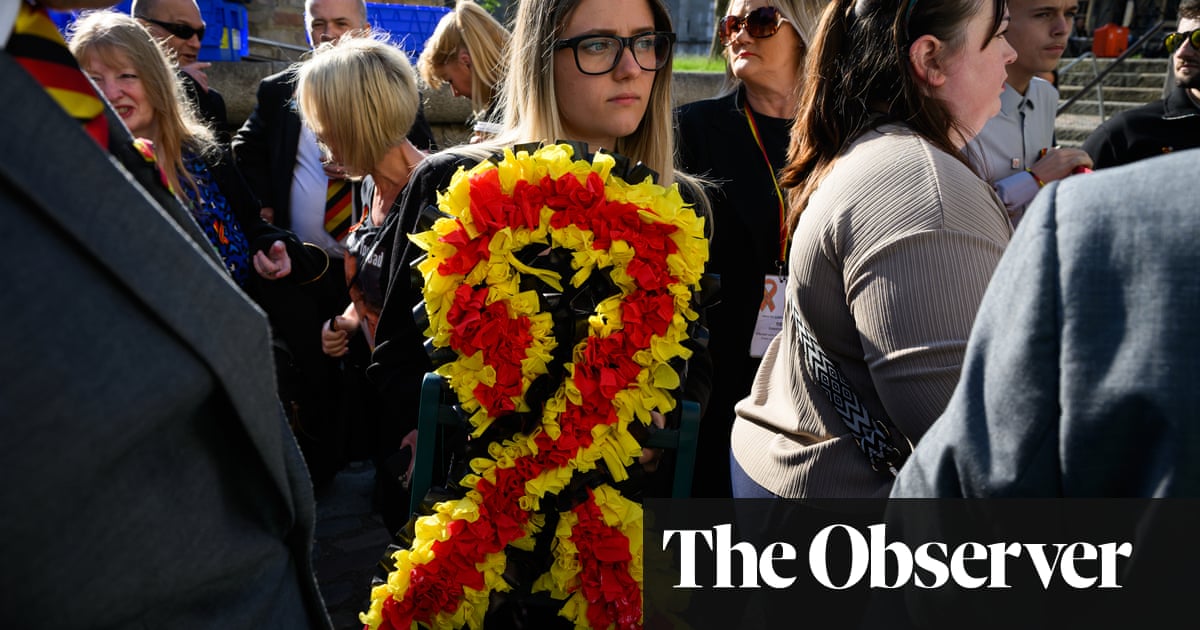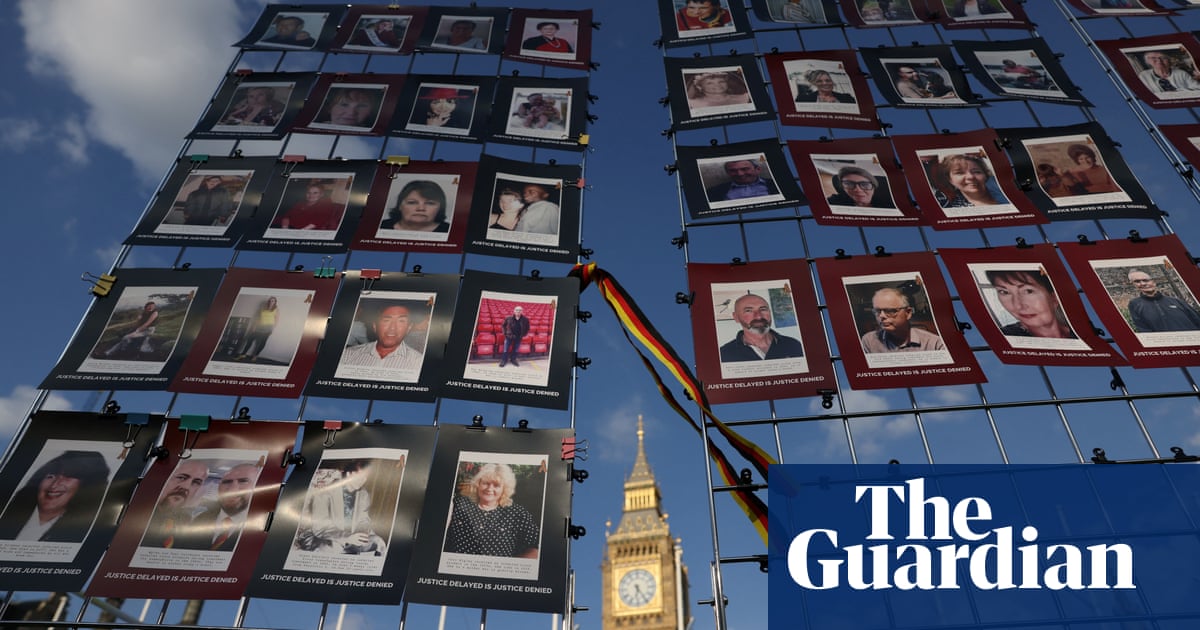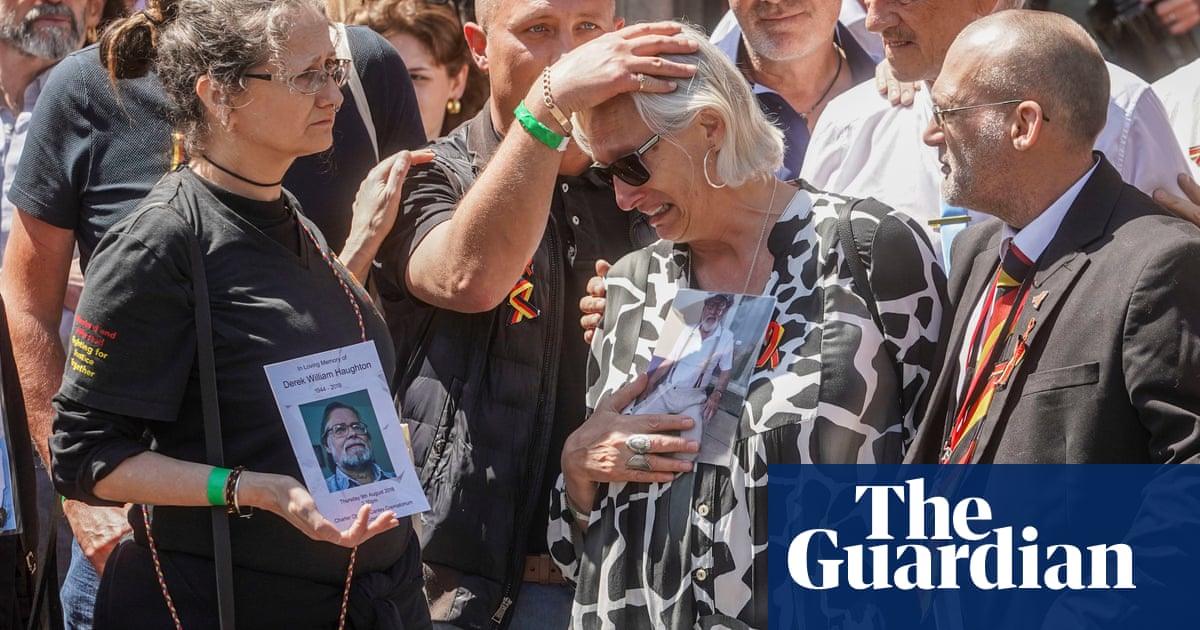
Ministers have given the Infected Blood Compensation Authority (IBCA) the power to start making payments to patients.
The Cabinet Office published a lengthy policy paper on Friday detailing the tariff-based scheme, and laid secondary legislation, which sets out the criteria for the first payouts.
The paymaster general, Nick Thomas-Symonds, said he was “incredibly proud” to have signed the documents, which empower the IBCA, once established, to start awarding payments to victims of the infected blood scandal.
But Susan Lee, of the Hepatitis C Trust, warned of “disparities” in the proposed compensation for people who were given hepatitis C, hepatitis B and HIV, in reference to the different levels of compensation depending on which disease a patient has.
More than 30,000 people who received NHS treatment between the 1970s and early 1990s were infected with contaminated blood and contracted viruses.
The Cabinet Office’s paper confirmed the government expects the IBCA to begin making payments by the end of 2024, with payments to affected people, including spouses, civil partners and long-term cohabitants of victims signed up for compensation, to begin in 2025.
The regulations set out that patients or their representatives can receive compensation if they satisfy the IBCA they contracted hepatitis C, chronic hepatitis B, or HIV as a result of NHS or armed forces’ infected blood.
If patients received infected blood treatment and a diagnosis of hepatitis C between 1 January 1952 and 1 September 1991, chronic hepatitis B between 1 January 1952 and 1 December 1972, or HIV between 1 January 1982 and 1 November 1985, they “will be eligible for compensation on the basis that treatment during those dates is more likely to have resulted in transmission”.
Payouts may also apply to people who contracted diseases from a victim through sexual contact in a long-term relationship, birth, or accidental needle stick injuries, but not if a patient contracted them through sharing needles while taking drugs.
Patients may choose to take compensation as a lump sum or in instalments over five, 10 or 25 years, with future payments uprated in line with inflation.
The government would pay a lump sum to personal representatives of eligible infected patients if they die before receiving their full entitlement.
The overall payment will be made up of a series of awards, including an injury impact award, which “compensates for past and future physical and mental injury and emotional distress and injury to feelings”, a social impact award for stigma and social isolation, and the autonomy award, which takes into account how infected blood may have affected patients’ private and family life.
The government has also confirmed financial loss and care cost compensation awards.
Some patients may face deductions, for example, if they received compensation awards made by a court or tribunal.
The Cabinet Office’s policy paper reads: “The government hopes that the scheme will enable victims of infected blood to receive due compensation without the need to go through a court or tribunal process to seek redress.”
Writing on X, Thomas-Symonds said he was “incredibly proud that the first law I have signed is the establishment of the infected blood compensation scheme”.
He added: “I again pay tribute to those who have fought for far too long for justice. The time for action is long overdue.”
Lee, the infected blood programme lead at the Hepatitis C Trust, said: “We welcome this legislation establishing, at long last, the Infected Blood Compensation Authority. People have waited far too long for this.
“We are still examining the information released today and awaiting further detail, but remain concerned by the disparities in proposed compensation for people who were given hepatitis C, hepatitis B and HIV.
“It is vital that the government does not underestimate the catastrophic and wide-ranging impacts that hepatitis can have on people’s lives.”
The amount a patient receives will depend on which disease or diseases they contracted, and their circumstances.
Lee said: “No amount of money can compensate for the suffering endured by this community.
“But without fair tariffs, many people will face even further delays to justice, and tragically more lives may be lost before justice is served.”












